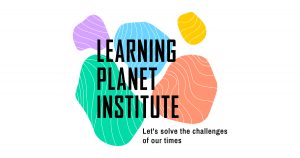As the challenges facing our society grow increasingly more complex, interdisciplinary education and approaches to problem-solving are of pressing concern for our democracies, economies, and the sciences. In order to maximize our impact cultivating the learning society in the hopes of transforming our fragile world, we ourselves will also continue to adapt and change.
Biologists François Taddei and Ariel Lindner co-founded the Center for Research and Interdisciplinarity, or CRI, in 2006 as a response to the social, environmental, and economic crises already looming at the turn of the century. The central tenet of CRI is a belief in learning through research as a critical component for preparing students to tackle the challenges of their time.
Ever since, CRI has doubled in size every 18 months since then, becoming an internationally renowned institute with a valued global partner network spanning every continent. We’ve moved into an award-winning 7,000 m² campus in the heart of Paris that’s home to more than 100 teacher-researchers and counting, over 40 researchers-in-residence, a student body of more than 2,500, with 35,000 learners involved in our extra-curricular programs and 120,000 online learners, 40,000 of which are fellow educators. It’s a hub of a wide array of research and education programs for students of all ages and backgrounds, kindergarten to PhD level, lifelong learning to participatory science, and more.

In response to increased demand from the public and private sectors seeking our consultation services to plug into the learning society, the time has come to grow our identity. Under our new name, the Learning Planet Institute, our goal will be to foster the learning society at even greater magnitudes to meet the challenges of our time and, as an accelerator of knowledge and community building, help both individuals and organizations do their part to shape the world’s future.
The Learning Planet Institute is the next chapter in the CRI’s story, continuing in same vein as the initial vision, only now leaning harder into the learning-society revolution. The new name is a reflection of both the ambitious scale of the social impact we want to have and the inevitable result of years of forging partnerships across the globe, likewise one of our biggest assets as we set out to achieve new milestones.

Board member of Global MOOC and Online Education Alliance
Founder of CRI
“Our name is changing, but we won’t lose sight of our fundamentals. We will continue to foster education environments where learners and educators collaborate as peers to design their own unique learning spaces rooted in interdisciplinary research, where creativity and education can come together to face down the challenges of this century,” says director François Taddei.
The Learning Planet Institute will transform into a whole new ecosystem of symbiotic education, research, and consultation initiatives:
- A research-and-development center dedicated to cultivating the learning society, housed in our state-of-the-art “collab-oratory” campus where education and collective intelligence can interface in never-before-seen ways.
- A place of learning where teachers and students are peers pursuing knowledge together, where every student is a scientist, and where teaching means learning how to learn.
- A consultation and training center for helping institutions, schools, private companies, government agencies, foundations, associations, and more join the learning-society revolution.
- A digital innovation hubplace where digital researchers can democratize today’s advances in artificial and collective intelligence through our own digital ecosystem and home-grown “knowledge GPS,” outfitting tools to help others discover and share knowledge in new ways.
- A placehub for developing and spreading the learning-society community, principally through the #LearningPlanet* initiative in partnership with UNESCO and smaller on-the-ground change makers; the initiative seeks to connect learners of every age and stripe and provide them with the tools and community they need to tackle societal challenges in their own way.
- An interdisciplinary life-science and synthetic-biology research department dedicated to Biology for Global Good; we will operate as a “middle ground” to foster collaborations between public and private actors to face biomedical-related challenges; the department will become an independent entity by year’s end 2024.
With the help of its long-standing partners the Bettencourt Schueller Foundation, the Université de Paris, CY Cergy Paris Université, the French Secretariat-General for Investment, Paris City Hall, Inserm (the French Institute of Health and Medical Research), and UNESCO, the Learning Planet Institute will continue to be an agent of change, combining research and entrepreneurship under the banner of social progress to join people together to design instruments and methodologies that can better our society in very real ways.
(*) The Learning Planet Institute is a founding member of the #LearningPlanet global alliance started in January 2020. In short time, it has grown to incorporate hundreds of partners of all different backgrounds in education, training, social entrepreneurship, sustainable development, and more. It’s thanks to these partnerships that the network continues to grow internationally, accelerating the global transition to the learning society. Young people and their sustainable future are at the heart of our vision, thus #LearningPlanet is also aimed at offering them opportunities to “learn to care for themselves, others and the planet” to contribute to a global culture of hope and commitment to making the world better.
REFERENCE: https://learningplanetinstitute.org/en/newspage?id=61c07e1661a8a2003b26038b
